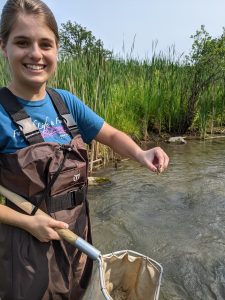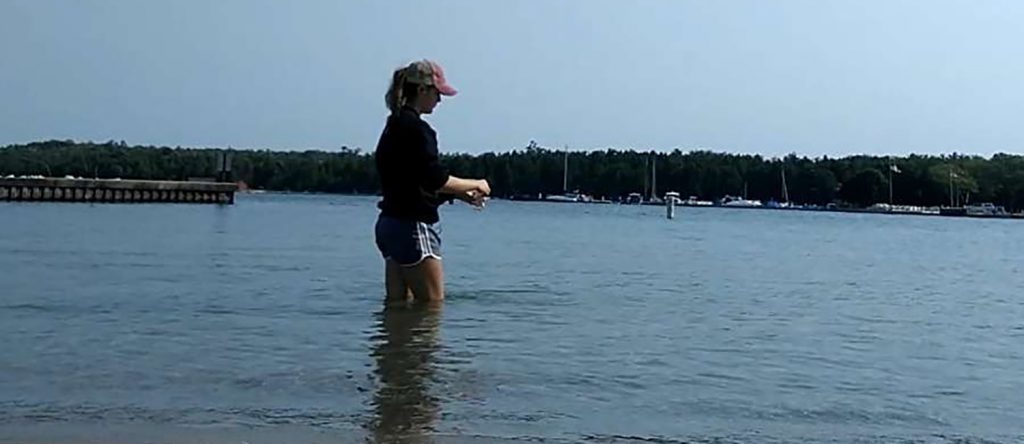The Freshwater Collaborative of Wisconsin supported 42 projects with $3.42 million of the $5 million in legislative dollars in March 2022 and will distribute another $800,000 in July 2022. This funding is creating impactful opportunities in research, student experiences, course development and career pathways. We continue to leverage the talents and resources across UW System to train the next generation of water professionals, address the 10 Grand Water Challenges and engage industry partners, community members, policymakers and advocacy groups.
We are addressing various water challenges across the state of Wisconsin. The following water challenges are most frequently addressed in projects and have been designated by the state legislators as major concerns for Wisconsin and its citizens:
- Agricultural Water Management
- Water Quality Safety and Emerging Contaminants
- Watershed Management and Restoration
- Healthy Recreational and Transportation Water Use
Student Experience projects focus on recruitment and retention by engaging students in hands-on learning. These experiences include:
- Expanding Research Experience for Undergraduates programming at UW-Eau Claire, UW-La Crosse, UW-Madison, UW Oshkosh, UW-Platteville and UW-Stout
- Comprehensive capacity building and implementation programs at all 13 universities
- In-field collaborations to protect and monitor water bodies in the agricultural water nexus
- Field courses that engage undergraduates in freshwater research on multiple UW campuses
- Freshwater camps and summer field experiences for high school juniors and seniors

“My favorite part of the project was going into the streams. I learned I really like fish! Now I want to be on the science side doing the work.” —Faune Fisher, a May 2022 graduate from UW-Whitewater who is now working as a quality manager at Epic Systems in Verona, Wis.
Collaborative Research projects are tackling water challenges while training undergraduates in freshwater research techniques, protocols and problem solving. Research topics include:
- Impact of agricultural runoff on navigation
- Statewide water policy regarding water challenges
- Evaluation of ROI on redevelopment of areas of concern
- Rural opportunities, prosperity and sustainability in the water sector
“We provide opportunities for students to learn the techniques, the workflow and the environment of this type of laboratory. One of the goals of our Freshwater Collaborative project was to make inroads with other campuses and bring students from the different campuses together.” —Greg Kleinheinz, Viessmann Chair of Sustainable Technology, professor of environmental engineering technology and director of the Environmental Research and Center at UW-Oshkosh
Career Development projects focus on helping students enter the water sector. The Freshwater Collaborative is building a statewide internship program and will create a hub for students to apply to opportunities. Students present their research findings at Research in the Rotunda and other professional conferences and are introduced to water professionals in the private sector, governmental agencies and nonprofit organization, thereby expanding their professional networks.

“This program was very field heavy, and it taught me that conditions are variable and to be prepared to problem solve. This also helped me to notice what type of career I would like.”
—Britta Larson, a biology and chemistry major at UW-Superior, tested beaches for coliforms, E. coli, microcystin and microplastics in Door County; looked at parameters that could influence bacteria levels at the beaches; assisted in method development for finding and analyzing the microplastics; and analyzed the safety of drinking water.
